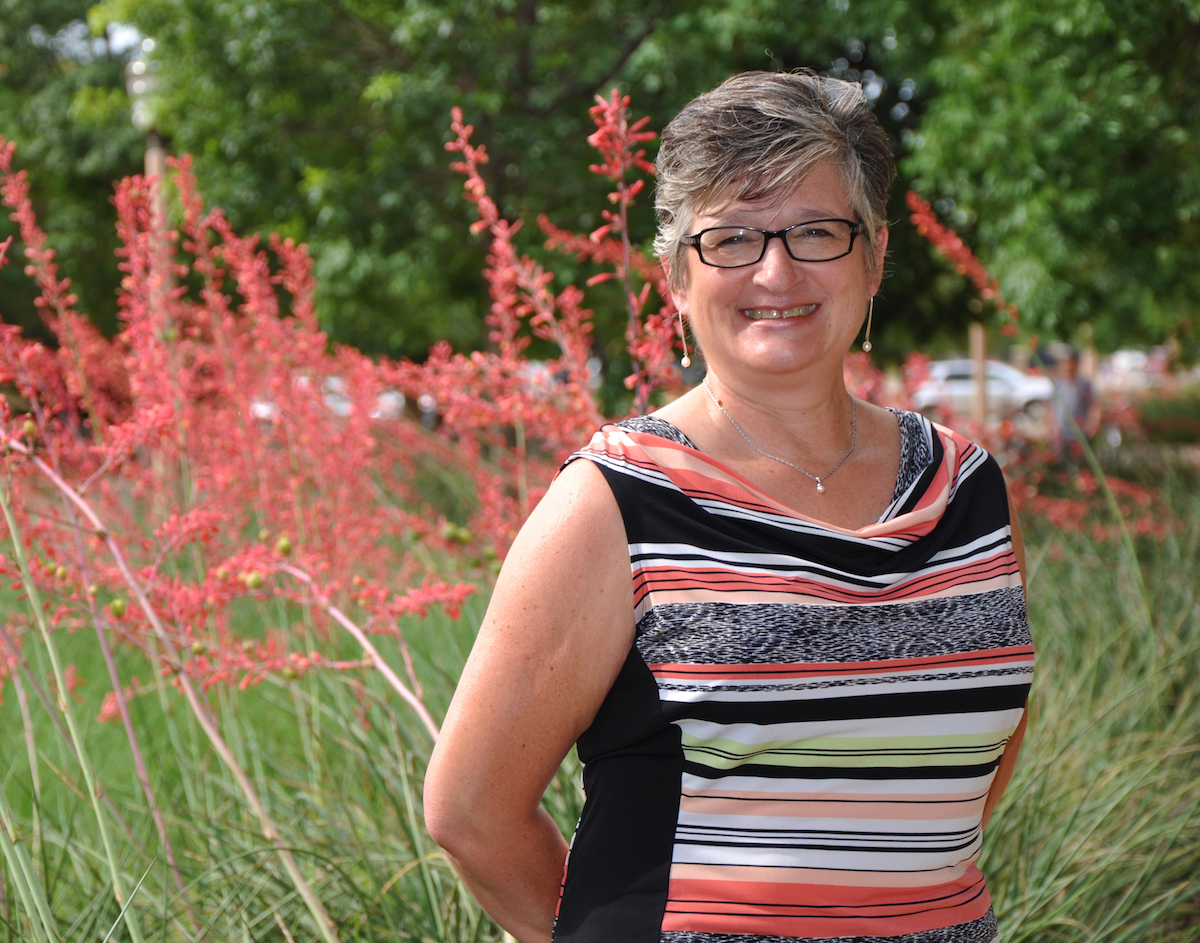The Texas Tech University Professional Communication Department, where we work, is located in Lubbock, Texas. It’s called the Hub City because it is the only major metropolis within a five- to six-hour drive of Dallas-Fort Worth to the east, and Albuquerque to the west. Lubbock also serves as an educational, medical, financial and industrial center to the many rural communities surrounding it.
While our city is quite isolated geographically, our university draws many of its students from around the state and its metroplexes: Houston, Dallas, Fort Worth, San Antonio and even Austin. The juxtaposition of our location to the heavily populated hometowns of many of our students provides a unique opportunity to prepare our urban-based students for practice during the school year, and to allow them to network and connect with local IABC chapters when they return home.
At the same time, our university also serves students from nearby rural towns and communities. These rural-based students, unlike our urban ones, do not have the same opportunities to gain experience through hometown internships. Our faculty sees creating an IABC student chapter as one means of addressing both sets of student needs.
As novices at creating student organizations, we connected with several established IABC student organizations and chapters to discover what we and our students would gain from a chapter. Through our discussions with these organizations, we were able to gain a much greater understanding of the process. But, even more than this, we gained insights about the benefits the organization offers students, such as the following:
- Real world connections and professional advice: Through events put on by these IABC chapters, students have the chance to connect with successful business professionals. In turn, these events sometimes offer internship and job opportunities previously inaccessible to students.
- Professional document development: As professors of professional communication, we witness the lack of professional preparedness daily. Many of the sources we met with mentioned they regularly hold workshops to create, develop and revamp students’ documents, such as cover letters and resumes. Recognizing the importance of these materials, we thought creating an IABC chapter at Texas Tech would provide students an opportunity to learn from others and strengthen their professional acumen.
- Leadership opportunities and enhanced communication skills: An IABC chapter at Texas Tech would provide many students the opportunity to move into leadership positions. Not only do leadership positions help students advance their knowledge and communication skills in professional ways, they provide students with real-world scenarios where they must collaborate and work with others to overcome challenges and effectively work as teams.
- Friendships and common interests: Student organizations also allow students to meet fellow classmates with common interests and goals. Until now, our department has lacked a professional communication organization. With the creation of an IABC student organization, we are providing students with the chance to collaborate and connect with others that will, in turn, expand our department as a whole.
We also turned to IABC leadership to discover what students might gain from initiating membership while in college. We learned that an IABC student chapter allows members to connect locally and globally with each other, as well as veteran and novice communicators around the globe. It provides them with a ready-made professional community with expertise they can draw on for mentoring and professional development.
Opportunities are endless through IABC’s professional development webinars and courses; educational resources found in Catalyst and PodCatalyst; and attendance at local and regional conferences, as well as the World Conference. We anticipate that the new IABC Student/Early Career Shared Interest Group will also allow students to connect with other student members in the U.S. and beyond. Even more exciting is the news that IABC has just announced a new heavily discounted membership rate for student members.
For our students whose hometowns have IABC chapters, we plan to encourage them to join locally, as well as our student chapter. In doing so, we hope to encourage them to seek internships in those locations and build a pipeline from our department to future workplaces. We expect that our rural-based students who may not be able to intern in larger cities may, nevertheless, build extensive professional networks and potentially find remote work that allows them to reside in rural or urban areas, whichever they prefer.
Our faculty and students are just at the beginning of our IABC student chapter journey, but we are extremely excited to see where it takes us. We look forward to learning from other student chapters as ours grows, and we are grateful that IABC has opened its arms to junior business communicators, especially to those of us here on the Texas High Plains.
Kelli Cargile Cook and Sheree McCormack Kelli Cargile Cook is a professor and founding chair of the Professional Communication Department at Texas Tech University. Prior to this appointment, she served as professor and director of technical communication and rhetoric at Texas Tech and as associate professor at Utah State University. Her scholarship focuses on online education, online training, program development and assessment and user-experience design. Currently, she is working on a co-edited collection with Kate Crane, titled, “User Experience as Innovative Academic Practice.” She co-edited two collections on online education in technical communication: “Online Education 2.0: Evolving, Adapting, and Reinventing Online Technical Communication” (2013) and “Online Education: Global Questions, Local Answers” (2005). She co-authored “The Agile Communicator” with Craig Baehr (2017).
Kelli Cargile Cook is a professor and founding chair of the Professional Communication Department at Texas Tech University. Prior to this appointment, she served as professor and director of technical communication and rhetoric at Texas Tech and as associate professor at Utah State University. Her scholarship focuses on online education, online training, program development and assessment and user-experience design. Currently, she is working on a co-edited collection with Kate Crane, titled, “User Experience as Innovative Academic Practice.” She co-edited two collections on online education in technical communication: “Online Education 2.0: Evolving, Adapting, and Reinventing Online Technical Communication” (2013) and “Online Education: Global Questions, Local Answers” (2005). She co-authored “The Agile Communicator” with Craig Baehr (2017).
Dr. Cargile Cook is currently a member of the IABC Professional Development Committee. She is a past president of the Association of Teachers of Technical Writing and of the Council for Programs in Technical and Scientific Communication. She has received three lifetime awards in technical and professional communication. She won the Distinguished Service Award from the Council for Programs in Technical and Professional Communication in 2013, and she was recognized as a Fellow by the Association of Teachers of Technical Writing in 2014. Most recently, in 2020, Cargile Cook received the Ronald S. Blicq Award for Distinction in Technical Communication Education from the IEEE Professional Communication Society.
 Sheree McCormack is a lecturer for the Professional Communication Department at Texas Tech University. McCormack has a bachelor’s in business administration and a master’s in communication studies, which influence her scholarship focus on business communication, interpersonal communication and interdependent/interpersonal relationships. Currently, she is working with her chairperson, Dr. Kelli Cargile Cook, to establish a student chapter of IABC at Texas Tech University.
Sheree McCormack is a lecturer for the Professional Communication Department at Texas Tech University. McCormack has a bachelor’s in business administration and a master’s in communication studies, which influence her scholarship focus on business communication, interpersonal communication and interdependent/interpersonal relationships. Currently, she is working with her chairperson, Dr. Kelli Cargile Cook, to establish a student chapter of IABC at Texas Tech University.